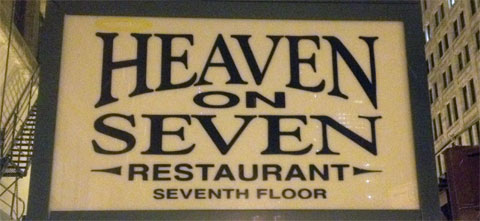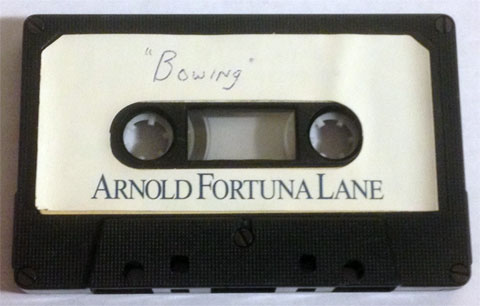Thank You For Seven Years Of The Hot Iron
Today, December 30, marks the 7th anniversary of the very first blog post on The Hot Iron, appropriately titled, Hello World.
Rather than getting mushy about the past, I’d like to thank you for reading, whether this is the first time you have read something I have written, you for some reason have been with me for the past 7 years or you are somewhere in between.
It has been an up and down journey, but aren’t they all? This past year I have gotten re-energized about blogging, and I hope to keep it up in the coming year. Only time will tell.
As I have in the past, I have wanted to have some photo to accompany the years, and this year I chose Heaven on Seven, an amazing New Orleans-style restaurant in Chicago. If you come to the Windy City, you must try it. They have 2 locations – one on the Magnificent Mile and one on Wabash Avenue, where this sign is located in front of. Go to the latter – the feel is more authentic.
This is from The Hot Iron, a journal on business and technology by Mike Maddaloni.
Did you enjoy this? Subscribe to The Hot Iron by RSS/XML feed or Read by Email.
Announcements • Blogging • Social Media • Thrive • (4) Comments • Permalink
My Long-Lost Boston Radio Commercial Debut From The 1990’s
When going through a junk box of stuff recently I found the above-pictured cassette tape. After pondering what was on it for a bit, I realized what it was.
It is my Boston radio commercial debut, dating back to the mid 1990’s.
The commercial is for Fleet Bank, and it was aired during radio broadcasts of the Boston Red Sox, throughout the Boston area as well as in other parts of New England. Thanks to a couple of friends I converted the audio to a YouTube video and you can watch the embedded video below, or listen to it directly from this link to YouTube.
So why was I in a radio commercial for a bank for my baseball team?
And Now For The Rest Of The Story
It was a summer night in Boston and I was going to a Red Sox game at Fenway Park. Prior to the game, as I would do for most games, I would have a pint or two of fresh-brewed beer at Boston Beer Works, a brewpub across from the ballpark. This night – and I forget the exact date or even the year – I recalled seeing some people with a digital audio tape recorder and a microphone. Being the former college DJ that I am (was?) I approached them and asked them what they were doing. They explained they were with an ad agency recording stories from fans for a series of radio commercials for the Sox for Fleet Bank, and then they asked me if I had a story. The story you heard in the commercial is what I told them, with a little editing I am sure.
After I recorded the story a couple of times for them, they asked me to sign a form with my name and address, indicating if they wanted to use it they would contact me. They gave me $10 for my time, and went on to talk to other people, as I went to the game. Several weeks went by, and one day I got a voicemail message from the ad agency, Arnold Fortuna Lane, saying they wanted to use my story and needed me to sign paperwork.
What? Me, on the radio? Cool! I called and confirmed my information, and they sent me a non-union talent contract to sign. They said in a few weeks the spots would run on the air and I would even get paid. What? Me get paid for being on the radio? Cool!
The next thing I knew, people were calling to tell me they heard me in the radio spot. I then made a point of listening to entire games on the radio, and there I was, telling people this story. My Mom, who was an avid listener of Red Sox games on the radio, would call me to tell me each time she heard me. Another friend said her Mom almost drove off the road when she heard me. The ad did not run every game, and as it aired later in the season it stopped its run in October. For my voice talent and my story, I got paid US$150.00 - surely not enough to retire on, but a nice bonus nonetheless. They also sent me the copy of the commercial on cassette tape.
That Was Then And This Is Now
I recall it was the mid 90’s as Fleet Bank had just bought another bank in Boston, Shawmut, and was making a big radio campaign with an end-goal of customer retention. Fleet later merged with BankBoston which was later acquired by Bank of America. The ad agency is now known as Arnold Communication. Unfortunately for me the phone did not ring seeking my golden voice endorsing other products, but I went on to a career in the Internet that has led to this recording being unearthed and released for all to hear once again. The Red Sox made some changes since then as well.
Special thanks to 2 distinguished gentlemen who helped me get this cassette to the Web. My good friend and DJ extraordinaire Eric Patel transferred the cassette audio to MP3 format, and veteran Chicago filmmaker and historian Floyd Webb took the audio and made it into a video.
This is from The Hot Iron, a journal on business and technology by Mike Maddaloni.
Did you enjoy this? Subscribe to The Hot Iron by RSS/XML feed or Read by Email.
Announcements • Diversions • Social Media • Thrive • (2) Comments • Permalink
Why I Quit Facebook
Nine months ago I did something that, looking back now, was both a brilliant and educational moment in my life.
No, not “that!” Instead, I quit Facebook.
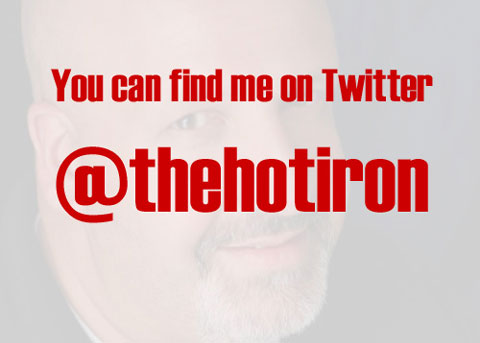
What did you say Mike, quit “the” social network” Yes, I did. I had thought about it for a while, and when I heard of other smart people I know also getting out of the closed ecosystem like my good friends Jen Hanen and CT Moore, I decided it was time for me to stop the madness myself.
And you read that correctly – I had been thinking about quitting Facebook for a while. Why? The reasons below are many. Blended together, they got me to cancel once and for all.
Nothing Personal
Quitting Facebook had nothing to do with any specific person, people or event. I did not do it in retaliation to anyone for any specific act. Rather, my decision was based on trends around how and what people communicate, actions that were moving in a direction by just about everyone who was using Facebook that I was connected with (and others who were friends of friends) that I did not like. I also count myself in with that grouping of people.
Even though I had amassed quite a large group of “friends” over the years, the quality of communications was not there, only the mass quantity of it. The fact I disconnected from them on Facebook doesn’t mean that I don’t like them, it was the pool we were all swimming in that I didn’t want to be in.
Too Much Information All The Time
Social media is all about sharing. But when everyone is sharing as much as they are, all the time, it can get overwhelming. I was getting drawn into Facebook and was spending too much time separating the wheat from the shaft to find relevant or useful information or engage in somewhat meaningful conversation. A visit to Facebook.com or the app on my mobile device was a time suck, as I was compelled to keep scrolling through until I found something of interest, even though many times I didn’t.
What I was sorting through was another matter altogether. They say that kids say the darnest things, well adults on Facebook are even worse. Just when I thought I had seen and read it all, I would read more and more detail that one wouldn’t normally post to the world, let along share in a whisper. Yet there it is, posted for all to see on Facebook.
One Hot UX Mess
To make matters worse, when Facebook went to the 2-column format, it became far too much for me. It was completely unusable, and compound that with the aforementioned volume of content and it makes for something I found very difficult to read and enjoy. Why subject myself to a (user) experience I did not like? I don’t visit some Web sites because of design and functionality flaws, so why should Facebook be any different.
One thing positive I will say about Facebook is the powerful engine behind that user experience. How often do you get a real error on Facebook? Years ago I attended a local conference and some developers from Facebook were there talking about the architecture of the site, and afterwards I had the opportunity to talk with them one-on-one. I was extremely impressed with their background, experience and the technology behind the site. How it was presented, at least to me, did not live up to what was powering it.
Living McLuhan’s Words
To me, Facebook lived to the letter of the words of Marshall McLuhan in that “the medium is the message.” I had written about this a couple of years ago in a post here on the Hot Iron titled Streaming Awareness By how I lamented about missing the birth of friends’ kids that were only announced over social media, and I never saw the original post. Needless to say, it continued. There were more I missed, though each time I did bring it to the parents’ attention my dismay – once it even compelled someone to send old-fashioned birth announcements by postal mail!
This changing of how we communicate feels almost like a cheapening of the interaction between people. Miss a small couple of word post on someone’s wall and you could miss out on seeing someone visiting town, and then the person who posted those few words thinks you are ignoring them. Yes, that happened to me once. Now I am not saying we all need to grab our quill pens, ink reservoirs and parchment paper and write long letters. Any tool of communication can be used wisely or poorly. Where changing your relationship status to “single” can inform the world of a divorce or major break-up, there are certainly classier, more tasteful ways to do so.
There was at least one time when Facebook put in a chance to only display the posts of people you recently communicated with. Huh? Yes, so if I was communicating a lot with 20 people, I would predominantly see the posts from them, and anyone else I may not see at all. When I heard about this I was shocked and undid the setting, and low and behold I was hearing from everybody, as I should be. It’s one thing if I make such a setting change, but I certainly don’t want someone telling me what I read and do not read.
And Now A Word From Our Investors
I will certainly not say that I predicted the snooping and tapping of electronic messaging on networks and social media sites by the US government. When I read the article in Time magazine when Mark Zuckerberg was named Person of the year in 2010, there is a direct mention about US FBI Director Robert Mueller walking in on the interview -. Why was the FBI Director at Facebook headquarters? I’ll leave it at that – read the article for yourself.
Nobody Seemed To Notice
Over the last 9 months, I have only heard from 3 people who said they tried to reach me on Facebook but could not find me. There were some that I told about my decision, and I certainly mentioned it more than once on Twitter. I had changed my Facebook picture and banner to the image at the top of this post, but once thing I did not do was inform people through Facebook that I was going to quit. Why? More so out of curiosity if anyone would realize I was no longer in their “stream” of consciousness. This experiment in social media was correct, but sad in its own right.
Don’t Call Me Anti-Social (Media)
Though I am not on Facebook, I am not shying away from social media. I am on Twitter @thehotiron, and this blog is my primary channel for longer form writing, longer than 140 characters anyway.
I have been drawn to Twitter because of its simplicity and binary nature – what I put out there is out there, and what I send as a direct message, which I use infrequently, is not. I find it easy to have conversations with individuals and on occasion with groups, though I don’t often participate in Twitter chats which are commonly driven by a unique hashtag. I also find it easy to pickup on a conversation and continue it later with the medium. My Twitter client of choice is HootSuite on the PC, though I am using the Twitter.com Web interface more and more as it has evolved tremendously. Twitter for me is like the water cooler or barstool in the local pub.
Blogging is something I enjoy and don’t do nearly as much as I used to and not as much as I would like to. In one regard it is an outlet for the things in my head, and in another it is a way to share and start a conversation. Where my tweets tend to be forgotten over time, my blog posts are still out there, and older ones still draw comments (even real, legit ones too!) and are shared by others. The Hot Iron is like a fireside chat or sitting down with a scotch and cigar among friends.
Looking Ahead And Always Evaluating
Facebook is not the only game in town. If you quit Facebook it should not be the end of your social media activity or identity. I have written before here at The Hot Iron about managing your online presence and I will continue to do so. But at the end of the day, what you do online should be only a part of who you are. So whether you call, tweet or write longhand, you are greater than the tools you use to communicate.
Your comments, as always, are welcome and encouraged!
This is from The Hot Iron, a journal on business and technology by Mike Maddaloni.
Did you enjoy this? Subscribe to The Hot Iron by RSS/XML feed or Read by Email.
Blogging • Social Media • Technology • Thrive • (4) Comments • Permalink
Why I Sign My Email Messages As I Do
It’s a question that comes up several times a year, and people have been asking me it for decades now. As many times as I have answered it, I have yet to write it down. Why I haven’t I don’t know for sure, but there’s no time like the present.
What is the question? Why do I sign my email messages as I do, with “mp/m”? And here’s a warning, it is a little retro-geeky!
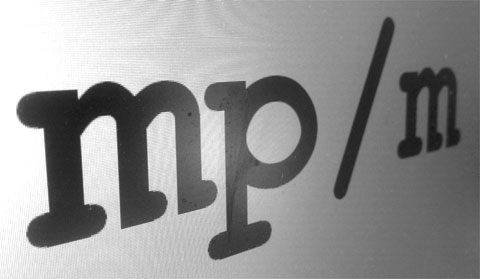
When It Began
I have used this signature for my emails dating back to when I was a kid. Then, the messages I was sending were over dial-in bulletin board systems (I have included a link to its definition if you don’t know what one is!). I would typically sign my messages with my initials, “MPM.” But why do I sign it now in lowercase, and what’s up with the slash between the P and the M? Here comes the geek part!
There was a single user operating system for microcomputers popular in the 1980’s called CP/M. It had a multi-user version called MP/M. When I learned of this I was intrigued – it was the same as my initials! I thought of signing my messages with “MP/M” but didn’t want any confusion with the operating system name, so I made the letters lower-case, thus “mp/m” was born as my signature.
Dial-in bulletin board systems were replaced by dial-in services like CompuServe and AOL. Those were replaced by Internet email. Yet through the decades, my signature remained the same.
That’s my story and I am sticking to it.
Go ahead – comment away on this, you won’t hurt my feelings!
This is from The Hot Iron, a journal on business and technology by Mike Maddaloni.
Did you enjoy this? Subscribe to The Hot Iron by RSS/XML feed or Read by Email.
Announcements • Blogging • Social Media • Strategize • Technology • (4) Comments • Permalink
Why RSS Still Matters Despite What Google Does #VIVARSS
In past posts here on The Hot Iron I have talked about Real Simple Syndication or RSS. Most recently in a post titled “iGoogle Shutdown And The Demise Of The Personal Home Page” I talked about how subscribing to various RSS feeds is replacing my iGoogle home page.
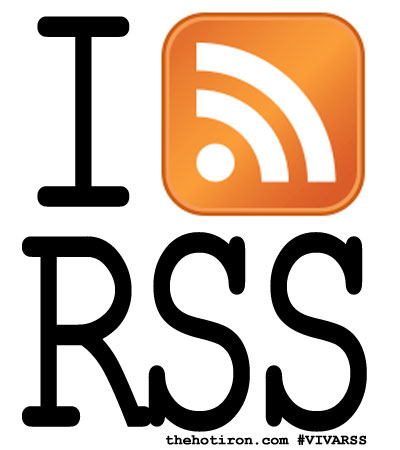
Since that post a major announcement was made this week that Google is dumping its free offering of an RSS feed aggregator, Google Reader, as announced on its official blog and subsequent post on its Google Reader blog. The service will be ending on July 1, 2013, just short of 4 months away. What is interesting is that Google gave a 16-month notice when it announced it was shuttering the also-free iGoogle service. Observing online sentiment over the announcement, there was more emotion over this than the news of the day before of the selection of a new pope!
So why the frustration? For me personally, as I switched to Fever last year, losing the service won’t impact my personal consumption of information via RSS feeds. Before I get into it I’ll offer up an explanation of what RSS is – if you are already in the know you can skip it or go ahead and read it to critique my approach to defining it.
So What Is RSS?
For those who are reading this please note I will not try to get too technical, rather explain the process. RSS is a method of informing of new content published, It is achieved by posting some or all of that content and related meta data, links, inages, etc. to a data file. This data file has a particular structure as it is formatted in the XML language (I won’t get into XML here, but if you must follow this link to learn about XML). That data file is placed on a Web server for anyone to access or subscribe to with a public Web URL (the file can also be private too, but I digress). Whenever content is added or any is changed or deleted, the publisher of the content can update the RSS file. As this file can change frequently, it is referred to as an RSS feed, as in feeding new content to the consumer of it.
The RSS feed in itself is not the only place where the power of RSS lies. Software, called an RSS feed aggregator or an RSS reader processes these RSS feeds that are subscribed to and organizes them to present the content to the consumer. There are a variety of RSS feed readers out there, from installed software, mobile apps, Web services (like Google Reader), as well as Web browsers and email clients. The reader also keeps track of what has been read, so that when the RSS feed is updated, it will show new vs. old content, among other features as linking to the source content on its Web site and social media and email sharing functionality. This concludes this RSS overview – let me know if it is clearer to you, or clear as mud.
Now Back To Our Story
Of all of the RSS readers out there, one of the most popular has been Google Reader, It’s power has been in its simplicity and robust formatting and sharing features, plus the fact it was from Google and integrated well into your Google account and that it was a free Web service. So when it was announced that what may be the most widely used RSS reader is going away in a few months, there was much shock and dismay, not only from people who use Google Reader to consume content but from content publishers as well, as an important channel may go away if those consumers of content do not find an alternative to Google Reader.
So why would content publishers be upset? They are still publishing the content so people can still seek it out to read it. First, I’ll give a perspective to who all of these publishers are. When one thinks of RSS feeds, they often only think of blogs and news. Most all blogging software includes out-of-the-box the ability to generate an RSS feed or multiple feeds, and typically you have to make an effort to turn this off. Many believe – including myself – that RSS feeds plus the ease of publishing have led to the popularity and success of blogs. News Web sites are a perfect match for RSS as they are constantly publishing content. This is why most sites not only offer 1 feed but many have a feed for each section of the site or content categories, such as breaking news.
Beyond blogs and news, many Web sites and information sources offer RSS feeds. A quick look at my own personal RSS feeds show job postings and news from company Web sites, weather forecasts, LinkedIn status updates for all of my connections, sports scores, discount shopping offers, Twitter searches and of course blogs and news.
As I talked about in the previously-mentioned iGoogle post, for me RSS is my main source for information. Moving from Google Reader to Fever has not diminished this at all. However what many fear is that people won’t seek out one of the many alternatives to Google Reader out there, and it could signal that RSS is no longer a viable technology or medium, just because Google is dropping Reader.
RSS Is Simply Not In Google’s Future
This past week’s announcement from Google is not the only activity they have taken against RSS. It has been slowly dismantling and marginalizing its FeedBurner service, which is an RSS “enhancer" providing analytics like subscriber counts, the ability to subscribe to a feed by email and other features to a “burned” feed. FeedBurner has always been a free offering from Google since it bought the eponymous Chicago-based start-up several years ago. Though it integrated inline advertising thru its AdSense service, it never really innovated the overall FeedBurner service or further integrated it like it has done with other acquisitions. Even FeedBurner's look and feel has barely changed over the years.
Recently Google announced it was shutting off the FeedBurner API as well as AdSense for RSS feeds. As a result there have been rumors abound that Google will shutdown FeedBurner altogether. Despite this Google has been silent on these rumors. Now with the announcement of Google Reader, people are biting their lip waiting for the other shoe to drop, and looking to other services like FeedBlitz to replace FeedBurner and keep similar functionality along with keeping their RSS feed live.
RSS Still Not A Household Term
By what I have described here regarding the power and simplicity of RSS, you would think that everyone is using it. However that is not the case. RSS, though a free open standard, has had an image problem in my opinion. It’s as though it’s too “techy” for the average person and as a result has not had universal adoption. Though it has a familiar orange icon and browsers and email clients now process feeds, it is not a completely seamless process to subscribe to a feed. Other than Google, not many large service providers with anywhere near the same name recognition have offered RSS readers. RSS has an identity crisis, with emphasis on the latter word ‘crisis.’
What’s Next For RSS?
![]() Just because Google Reader is going away, RSS is not. And in reality, it can’t! As it’s an open standard, as long as someone is publishing an RSS feed file and someone is processing it, RSS is more than alive and well.
Just because Google Reader is going away, RSS is not. And in reality, it can’t! As it’s an open standard, as long as someone is publishing an RSS feed file and someone is processing it, RSS is more than alive and well.
Over the past few days I have seen a lot of activity online from those looking for alternative RSS readers such as Fever that I use. A am also sure that entrepreneurs are coming up with innovative alternatives, and I wouldn’t be surprised if another major player makes a goodwill PR move into RSS feed reading as well. On another note, I predict FeedBurner will be eventually shutdown by Google, though that is a whole other blog post on the impact and recovery from that!
#VIVARSS! Do you agree? If so or not, I welcome your comments to this post. And if you do comment, please indicate whether or not you subscribe to The Hot Iron’s RSS feed.
This is from The Hot Iron, a journal on business and technology by Mike Maddaloni.
Did you enjoy this? Subscribe to The Hot Iron by RSS/XML feed or Read by Email.
Blogging • Social Media • Technology • Web Development • (2) Comments • Permalink

